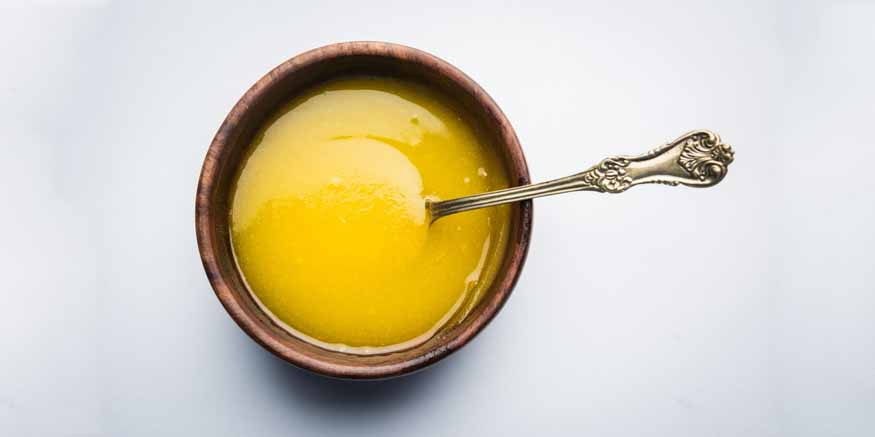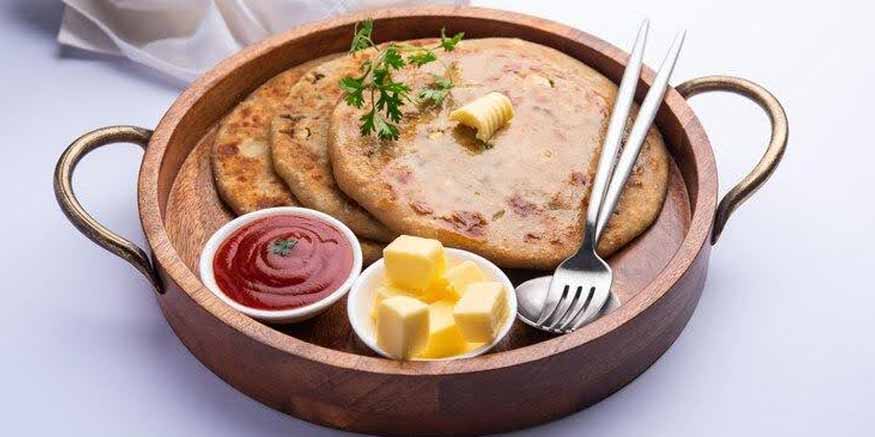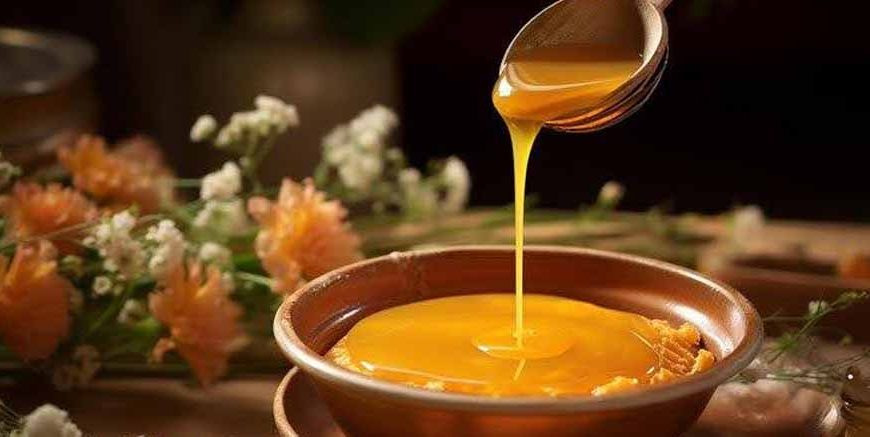It is evident that as parents to children, we would always wish to ensure that the kids are provided with the best form of nutrition for their growth provision. Thus, although many workings of today’s diets focus on products with low fat, it remains crucial to learn about benefits of edible fats like ghee. This article highlights the amazing uses of ghee in the children’s diet and nutrition value in children with regards to the benefits of ghee in children’s dietary practices.
This means in case we are parents to children we will always want to make sure that the children are fed in the best way possible for their growth provision. Thus, despite the fact that many workings of the present diets of people pay great attention to the so-called ‘low fat’ products, i is vitally essential to gain some idea about the advantages of edible fats such as ghee. This article also points out the multiple purposes of ghee addition in children’s diets and the nutrient value of ghee in children from their dietary habits perspective.
Ghee is a kind of clarified butter commonly used in South Asian countries and it has been valued because of the numerous health benefits it has been known to offer for a long time now. While ghee is truthfully virtually the same as butter, ghee is clarified, which means it lacks the milk solids of regular butter, making it a concentrated source of butterfat that is nutrient-dense. , including children, can benefit from the inclusion of ghee in their diet since it can assist with the development of the brain, also fortify the bones, improve nutrient digestion, and help strengthen the immune system. Thus, given this knowledge about the nutritional merits of ghee, parents can adequately assess and incorporate this superfood gently into children’s diets, which, in turn, would help them grow and develop.
Table of Content:
- Is Ghee Good for Children
- What Are the Benefits of Ghee?
- How Much Ghee Per Day?
- How to Eat Ghee?
- References
Is Ghee Good for Children?
To answer that in writing, YES! There is nothing better than the joy of helping our fellow man as well as his dependents. This refined butter known as ghee is one of the most wholesome foods that have been consumed all over the world and is known for the properties that are contained in Ayurvedic tradition. While normal butter is that which contains the normal fats with some milk solids, ghee is prepared in such a way that it remains only the more refined form of butterfat which has been gotten from boiling the butter.
Ghee contains fat soluble vitamins, for example vitamins A, D, E and K which are helpful in different processes in the human body, for instance bone formation, body protection against diseases among others and growth in the body system as a whole. Also, ghee contains other short chain fatty acids which are Butyric acid which contains antioxidant nutrients, possess some level of anti inflammatory and it helps the digestive system.
What Are the Benefits of Ghee?
- Supports Brain Development:
- Promotes Bone Health:
- Enhances Nutrient Absorption:
- Supports Digestive Health:
- Boosts Immunity:
Ghee is made of fats and cholesterol and these are quality foods; the other fat such as omega three and omega six fatty acids that is present in ghee is essential in the development of the brain. The substances are the kinds of fatty acids which are extremely important for the formation of the human brain during a baby’s early periods of development and for learning, memorizing information, and thinking.
Vitamin K2 present in ghee is helpful for bone health since it activates osteocalcin that helps in the absorption of calcium and its deposition in bones. Of all the benefits of calcium you can get to know deep into your meat this benefit is very crucial in the early age of childhood when your bones are growing so fast to avoid things like rickets.
The other effect is attributed to Vitamin K2 found in ghee that plays a role in the arrest of calcium on bone tissue. It is essential because during the development process of a human being, especially in childhood, proper nutrition is a fundamental factor that may help in growth of bones in the body and could also prevent diseases such as rickets.
The presence of butyric acid in the ghee also contributes to a healthy digestion according to the research done on it. It amounts to serving as a source of metabolism for the lining cells of the colon, and, possibly, an intervention that helps to prevent digesting disorders.
This cultural spread is rich in antioxidants such as vitamin E, and conjugated linoleic acid (CLA) that enhances immunity and offers protection against oxidation. Immunity is an important function to consider in children, because it enables them to fight off infections and diseases better than otherwise.
How Much Ghee Per Day?

While nutritionists may encourage the use of ghee as an important component of the foods that young ones should consume, parents and guardians should be very careful when using the product. Regarding the type of ghee allowance for children, the proportions depend on age and specifically the RDA or recommended daily allowance. As far as the amount is concerned, children within two to five years can take 1-2 teaspoons of ghee per day, and children between 6-12 years, 2-3 teaspoons are recommended.
What one must understand and remember is that ghee should be had in moderation as a matter of fact and should not be used as a substitution to other components of the diet. Parents should seek professional advice especially from a pediatrician or a nutritionist because the advice given should suit a child and his/her needs.
How to Eat Ghee?
Ghee is incredibly versatile and can be incorporated into a child’s diet in various ways:
- Spread on Toast or Bread:
- Cook with Ghee:
- Add to Smoothies or Milkshakes:
- Drizzle over Cooked Dishes:
- Bake with Ghee:
Instead of normal butter use a little of ghee on toast or bread as a way of taking break-fast in the morning.
To clarify butter, heat it gently and pour the clear liquid into another container, leaving the solidified butter below and to the side and that thicker layer at the top is ghee. Ghee is best used for sautéing vegetables, cooking eggs, or preparing rice dishes. This type of oil could be recommended for high-temperature cooking since it burns at a high heat point.
Adding a proportionate amount of ghee, one can mix it in smoothies or milkshakes creating a creamy luxurious experience.
Ghee can be added when the food is still cooking or has been cooked like rice, vegetables, or lentils in small quantities to improve taste and nutritional content.
Use it as a replacement for butter or oil in such recipes as cookies, muffins, breads among others, giving a buttery flavor together with nutritional values.
However, moderation is imperative when using ghee, and it is recommended to start with very small measures especially when using it on a child who is not used to its consumption. The information provided should be taken wisely and to get a professional opinion on how the ghee can be incorporated into the diet of the child, a healthcare provider should be consulted.

Finally, the author’s discussion of ghee indicates that this fat is a rich source of energy with desirable effects for children. Thanks to its nutrient make-up of essential fatty acids, vitamins, antioxidants and minerals, it helps preserve brain function, improve bone density, keep digestional well being in check and boost the immune system. In moderation and with respect to a proper nutrition plan, including ghee in children’s diet, will serve as a means of enriching their diet plan to enhance their health and wellness.
For more such interesting blogs, Visit EuroKids
References:
- https://www.drsearswellnessinstitute.org/the-benefits-of-ghee-for-children/
- https://www.healthline.com/health/parenting/ghee-for-kids
- https://www.momjunction.com/articles/benefits-of-ghee-for-kids_00522803/
- https://theayurvedicinstitute.com/benefits-of-ghee-for-children/
- https://draxe.com/nutrition/ghee-for-kids/















